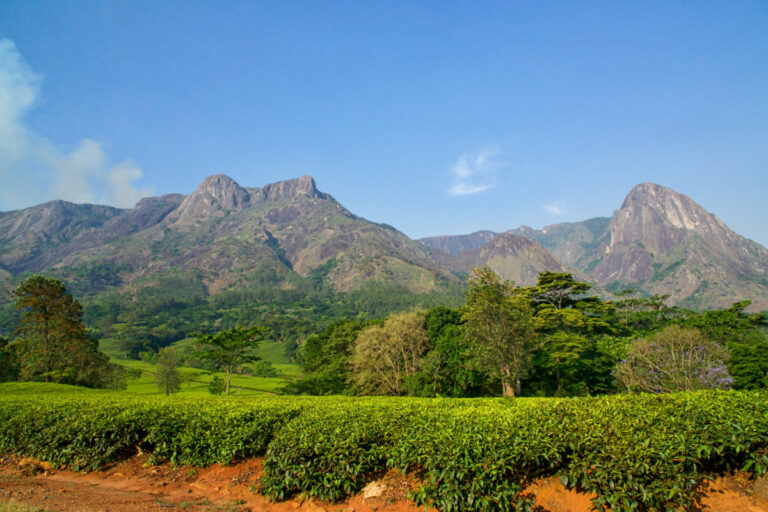- A verification assessment launched by the Roundtable on Sustainable Palm Oil has acknowledged breaches around the plantations of Cameroonian palm oil producer Socapalm.
- Despite allegations against Socapalm and subsidiaries of holding company Socfin in other countries, the RSPO recently issued certification status to multiple plantations, saying verification and certification don’t contradict each other.
- Local and international organizations are calling for Socapalm’s RSPO certifications to be rescinded due to the ongoing irregularities.
Fresh controversy has emerged over the leading certification scheme for sustainable palm oil after a verification mission exposed ongoing issues around certified oil palm plantations in Cameroon.
Earlier this year, the Roundtable on Sustainable Palm Oil (RSPO) carried out a verification audit to investigate allegations of encroachment on community land, pollution and sexual harassment made by communities around plantations run by the company Socapalm in southwestern Cameroon. Some of the accusations date back to 2013, but an audit of the plantations in Dibombari, Mbongo, Mbambou, Eséka, Edéa and Kienké was only commissioned after the issues were reported on by German broadcaster Deutsche Welle and campaign group World Rainforest Movement in 2020 and 2021.
The verification, carried out by an external consultant, was delayed until this year because of the COVID-19 pandemic. “The auditors did proper research on the ground and found that there is encroachment onto people’s land and an existing conflict,” Danielle van Oijen, from Friends of the Earth Netherlands, told Mongabay in a phone interview. “They found some serious issues for which a company normally wouldn’t get a certificate.”

But in the meantime, various parts of Socapalm’s plantations were certified by the RSPO between December 2021 and April 2022, with only one section of the plantation, Kienké, yet to receive certification.
Friends of the Earth Netherlands is one of the signatories of an open letter published last week by Cameroonian and international organizations that criticized the RSPO and called for the cancellation of all certifications issued to Socfin, Socapalm’s Luxembourg-based holding company. Socfin also operates plantations in Sierra Leone, Nigeria and Côte d’Ivoire. In total, the multinational controls almost 400,000 hectares (990,000 acres) of land in West Africa and Southeast Asia.
“Socapalm plantations should not be certified as the company doesn’t meet RSPO standards,” reads the letter.
Van Oijen and Emmanuel Elong, a leader of Synaparcam, a local association of landowners, say the auditing company commissioned by the RSPO sent a team to visit affected communities on the ground, but focused on the company’s paperwork and policies. It limited interviews with the community to a few hours at the beginning of the process, they said.
“The auditors were directed by Socapalm executives to investigate workers, individuals and village planters sympathetic to Socapalm’s cause,” Elong told Mongabay. “Statements supported by evidence from community leaders and other local organizations were ignored by the auditors.”
As a landowner from Mbonjo, a village surrounded on all sides by Socapalm’s oil palm trees, Elong has represented villagers and their grievances for more than 10 years, taking part in several dialogs initiated to address the still unresolved land conflict.

Following the verification audit, RSPO wrote to Socapalm in July asking the company to revise its free, prior, informed consent (FPIC) policy and implementation, and to identify Iandownership through social and environmental impact assessments.
In a media statement, the RSPO acknowledged that Socapalm has breached sustainability guidelines at this plantation. “Socapalm is required to undertake remediation and mitigation measures for each breach, and to submit a quarterly progress report to the RSPO Compliance Subdivision on the measures taken.”
But according to Kimasha Williams, communications manager for the RSPO, the verification assessment of Socapalm doesn’t contradict the body’s certification of the company. “Some of the company’s operating units had previously been certified before the verification assessment started,” she told Mongabay over email, and these were found to be “in full compliance with all the 2018 RSPO Principles and Criteria (P&C) requirements.”
She added that “any unsatisfactory implementation of the action plan could result in a formal complaint being lodged by the RSPO Secretariat.”
The RSPO has a formal complaints system that processes both violations noted by the organization directly, and external complaints that can be lodged by anyone. When the RSPO finds complaints are valid, it often issues a set of recommendations for the company to address and document through regular reports.
While this mechanism has sometimes resulted in punitive action, such as in the case of the RSPO issuing a temporary stop work order to Good Hope Asia Holdings in Indonesia in 2017, other cases, such as one by communities against Golden Veroleum in Liberia, have been pending without outcome for more than 10 years.
Most complaints have been filed by communities and revolve around land conflicts. An analysis of the complaints system by the Peruvian investigative journalism network Convoca.pe found that 49% of the 141 complaints lodged against the RSPO in the past 12 years have been dismissed.
The RSPO’s standards include respect for human rights as well as delivering benefits to communities. Resolution of land conflicts is mentioned as a principle in the organization’s minimum requirements for the certification of multiple management units, which applies to companies like Socfin that run operations in multiple countries.
However, in recent years, the RSPO has been criticized for not applying these principles in practice. “If you look at the standards, they are rigorous. But it’s about how the company is being checked against the standards — and that’s really poor,” said van Oijen, who was involved in a formal complaint against the RSPO’s Socfin certification last year, which remains unresolved.
For van Oijen, the verification mission illustrates what she says is further proof of the RSPO’s “messy and confusing” processes, especially as audits are mostly outsourced to external consultants who don’t coordinate their findings with each other.
It’s also unclear why the certifying body ignored years of documented complaints by affected communities near six Socapalm plantations in Cameroon, but launched a verification mission only after the issues were taken up by media and an international campaign group.
“It seems random that similar allegations towards Socfin’s other plantations are not being investigated,” van Oijen said.
The RSPO did not directly answer Mongabay’s question regarding the decision, but wrote: “The sites for the verification assessment were selected based on the information gathered from public domain and after an initial desktop review.”

‘If they take our lands, we’ll be dead’: Cameroon village battles palm oil giant
Banner image: Members of Synaparcam, an association of communities affected by Socapalm. Image courtesy Thierry Didier Kuicheu
FEEDBACK: Use this form to send a message to the author of this post. If you want to post a public comment, you can do that at the bottom of the page.














